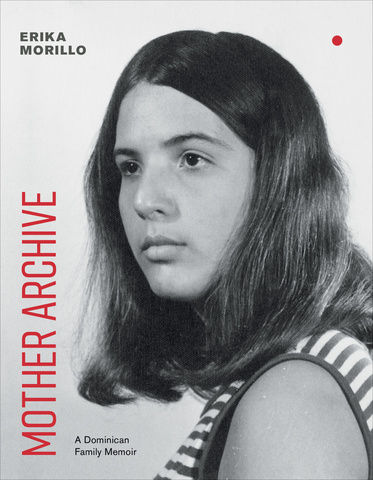
Each semester, the Writing University hosts the 5Q Interview series with authors from the University of Iowa Press. We sit down with UI Press authors to ask about their work, their process, their reading lists and events. Today we are speaking with Erika Morillo, author of Mother Archive (University of Iowa Press, 2024).
Born and raised in the Dominican Republic, Erika Morillo is a photographer and writer based in Jersey City. Her work focuses on the issues of family, the finding of identity, and exploring the photobook as an art object. Her photographs have been published and exhibited nationally and internationally and her photobooks are in the collections at the Whitney Museum of American Art Library and The International Center of Photography Library. She holds an MA in sociology from The New School for Social Research and an MFA from Image Text Ithaca.
Mother Archive is ON SALE now, on the University of Iowa Press website.
Can you tell us a little bit about your new book Mother Archive?
Mother Archive is both a repository of memory and a dialogue with my roots: My mother and the island where I was born. In this image-text memoir, I create an archive out of a myriad of sources: family photographs, images I’ve made, news clippings, videos, and conversations. Growing up in the Dominican Republic, in a culture and family that favored silence and is unaccustomed to examining their experience, I see this work as a personal case against erasure.
What was the inspiration for this work?
In making this work, my main intention was to make room in my life for something new, to create space for a different way of being and experiencing life that was not so tethered to the narratives I grew up with, the stories that in my family, we’ve told ourselves to make sense of our histories.
There were incidents in my mother’s past as well as in my own upbringing that needed confronting, that needed to be discussed. When I became a mother, facing the events that shaped my lineage — familial and state violence, migration, broken attachments, and erasure — seemed more urgent. This book is my attempt to create the bond and spaces for discussion that I wish existed in my relationship with my mother, and a conscious effort to rid my son of this generational baggage.
Do you have any plans for readings or events for this book, either in person or virtual?
Yes. I [had] a book launch/reading in New York City in October, and plan to have a few readings in different cities across the U.S. I would also like to participate in some Literary festivals and readings.
What are you reading right now? Any books from other University or independent presses?
I’ve been reading a lot of memoirs this past year, and I'm currently reading Liliana’s Invincible Summer by Cristina Rivera Garza. I also really enjoy poetry, and have a few titles on my nightstand at the moment from some of my favorite independent presses: Es una buena máquina by Miyó Vestrini, published by Letra Muerta Inc., Cuentos y Poemas 1998-2003 by Rita Indiana, published by Ediciones Cielonaranaja, and a title from Ugly Duckling Presses’s Pamphlet series, Nicole Cecilia Delgado’s A mano/By hand. At the moment, I am very interested in reading more works from The Caribbean.
What is your writing routine? Do you have a daily routine?
I don’t have a set time for sitting down and writing, although I wish I would. I write in spurts, mostly when I am moved by an experience, an image, or read something I connect with. I have a writing notebook always with me, filled with random notes, sentences, and ideas I’d like to write about. In my writing process, I sit down with these notes, with the observations and information I’ve gathered, and start piecing it all together.
I think this way of writing, sporadic and disjointed, has contributed to a more experimental form in my work, specifically in the case of Mother Archive, where its chronological displacement reflected the plethora of information sources from various periods I was pulling from (photos, articles, oral history). In my writing, gaps, a sort of lacunae, are always at the forefront, either as the inspiration for the work or in the structure of the writing itself. This void is the space from which all of my writing has emerged, and also a space that gives the reader agency and an opportunity to imagine or make sense of the parts left out.
**
Thank you!